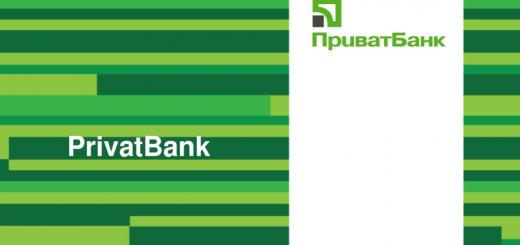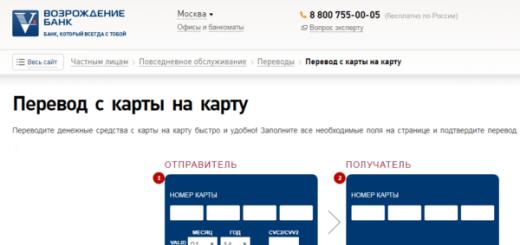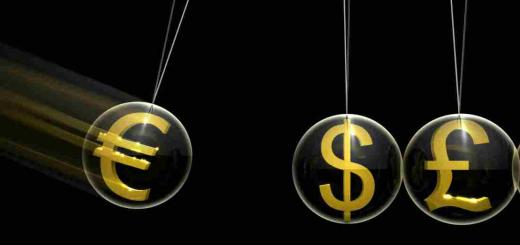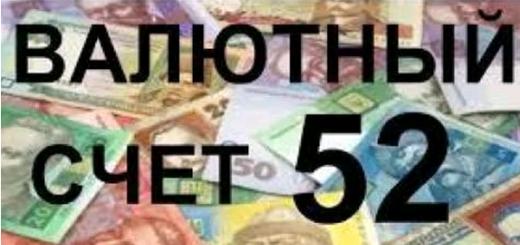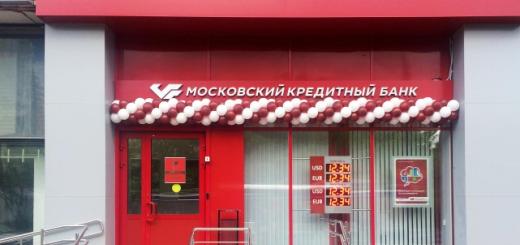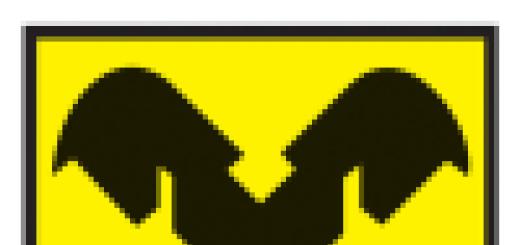Now I will talk a little about banks in thailand.In Thailand there are several main banks where you can exchange foreign currency for local baht. Information about which of them is most profitable to change money can be obtained on the official website of the bank.
Below I will give a list of banks with the most common network of exchange offices in Pattaya. Official exchange rates can be found by clicking on the link to the bank's website.
Kasikorn Bank (Kasikorn Bank)
The most popular bank of thailand. The corporate color is green. Usually the most profitable well exchange currencies happens in this bank. In addition to currency exchange, in this bank you can very easily open an account and get a bank card. In addition, motorbike accident insurance can be purchased from Kasikorn Bank.
Siam Commercial Bank (Siam Commercial Bank)

Another very popular bank in thailand. The corporate color is purple. In addition to currency exchange, this bank allows you to withdraw large amounts of money (up to 200,000 baht) without commission.
TMB Bank (T.M.B. Bank)

The bank was established by the Thai government to serve the families of military personnel and the various needs of the country's Ministry of Defense. This bank is very popular among locals living in the northern regions of Thailand. Corporate color - light blue.
The banking system of Thailand originates in 1851, it was then that the issuance of treasury banknotes was launched. IN late XIX century in Thailand, private banks began to issue banknotes: the Bank of Indochina, the Preferred Bank of India, Australia and China, the Banking Corporation of Hong Kong and Shanghai. In 1939, the Thai National Banking Bureau was established as a department of the Ministry of Finance. On April 28, 1942, the State Bank of Siam was founded on the basis of the bureau. In 1949, the bank was renamed the Bank of Thailand.
To date, the largest banks in Thailand are:
Kasikorn Bank (Kasikorn Bank)
Kasikorn Bank Public Company Limited- founded in 1945, today it is the most popular bank in Thailand, it is here that a foreigner can open an account and get a bank card just with a passport with any visa, without providing additional documents. Cash withdrawal limits at ATMs - 20 thousand baht. (if you need a larger amount, you can make the transaction several times and withdraw several times in one ATM (ATM)
SWIFT code: KASITHBK
Web site:
Siam Commercial Bank (Siam Commercial Bank)
Siam Commercial Bank Public Company Limited- the oldest Bank of Thailand, founded in 1906 by members of the Royal Family of Thailand, so it is traditionally popular with the Thai business elite.
SWIFT code: SICOTHBK
TMB Bank (T.M.B. Bank)
Thai Military Bank Public Company Limited- Founded in 1956, was originally established to serve the needs of the Thai Ministry of Defense, military personnel and their families. Thanks to this, it has become very popular with ordinary Thais, especially those living in the Northern regions of Thailand.
SWIFT code: TMBKTHBK
Bangkok Bank (Bangkok Bank)
Bangkok Bank Public Company Limited (Thanakan Krung Thep)- the largest bank in Thailand, founded in 1944, serves most of the capital's corporations and foreign representative offices. Cash withdrawal limits at ATMs - 25 thousand baht. (if you need a larger amount, you can make the transaction several times and withdraw several times in one ATM (ATM)
SWIFT code: BKKBTHBK
– congratulations! But it’s worth starting to think about what bank cards to take on a trip, which is more profitable - to pay in cash for purchases or by card? Almost all shops accept cards for payment, you can withdraw Thai baht from an international ruble card when you arrive. To bring currency to Thailand, you first need to buy it at a commercial bank in hometown and lose 5% per conversion. In Thailand, you need to change the currency to Thai baht and lose another 5%. It turns out about 10%. The losses are big. If you use a ruble international VISA card to receive money, the conversion will go through the dollar, at its rate, and then into Thai baht. It's more economical. For Thailand it is better to have a VISA card. For security, it is not the best option to keep money under the mattress, but it is better to keep it on the card.
Thai banks cooperating with Russia: Bangkok Bank, Casicorn Bank, Kulgri Bank (it issues a record 30 tyr per day), Siam Bank. There are many ATMs. To receive more than 30 thousand baht, you need to go to Bangkok Bank with a passport and a card, where the teller will help you get up to one million baht. It is better not to go to other banks for such money.
If the purchase costs less than 500 baht, then some stores refuse to take cards. Some stores, although they warn in advance, they charge a considerable commission - 3%. Abroad, it is better to use VISA or MASTERCARD cards. MAESTRO Cards, CIRRUS cannot always provide you with some services - rental, hotel room, insurance, and so on. It is better to take two bank cards with you - you will suddenly lose one card or the bank will block. The choice is yours, but using a card or cash withdrawn from the card seems to be the best option.
Whatever is on your card, the ATM will issue baht. With them and hurry to the store if it does not accept cards. The bank did not change, he does not issue money. The money changer is payment system(for example, VISA and Russian bank), so you can safely receive money at any ATM. But if you still received an offer from an ATM to exchange money, you need to run - the rate will be less profitable than that of your VISA. But if you got into a puddle and agreed, you will lose your money, since the request to your VISA is not in baht, but in dollars. In order for the money to remain with you, the request must go in baht. If you need any currency, look for an exchanger. That's not for long. They stand alone in bank branches. ATMs also want to have their own and charge a commission of 180-200 baht. It is inevitable and independent of citizenship and amount. If you don't want to pay extra, go to the bank. ATMs will give out no more than 20-30 thousand baht. In order not to pay a commission every time, withdraw a lot at once, otherwise you will part with 200 baht each time. Do not go to a Thai bank in T-shirts and slippers - they will not understand. Most importantly, do not forget your passport, without it they will not give you anything. It is useless to use scarce knowledge in English and wave the card. Forward! To the ATM!
The bank almost constantly scans your card, and they are not interested in the pin code. Our paranoids are concerned, although the explanation lies in the map setting. The Thais are not always happy to serve us, they lie that there is no machine for the card, they make a confused look, and rush to the exit, they say, go to another bank. Siam Bank and Bangkok Bank love us better and in 90% of cases there are no problems.
If ATMs are workaholics and work around the clock, then banks - from 8.30 to 15.30. Weekends - Saturday and Sunday. Banks do not take commissions, at least in Bangkok Bank and Siam Bank they definitely do not. There are many branches of these banks, so use it. The Russian bank sins with the commission in tariffs. In a Thai bank, you can be sent to an ATM for a small amount, but not in Siam Bank - there is no limit on the amount. If you decide to live in Thailand longer, you need to make a local bank card. Agrees to this issuance of cards "according to tourist visas", only Kasicorn Bank, and even then not in all branches. You can transfer money from Russia to a Thai card and store it in baht, forgetting about exchange rates at least for a while. With such a card, you can withdraw Webmoney through an exchanger with an excellent rate. It is more profitable only with a private money changer if you exchange your Webmoney for his butts. If you need to transfer big money from Russia to Thailand, then you can’t carry it in a bag. This is where a Thai bank account comes in handy. We need to think well about Russian bank, for example, AlfaBank, so that it takes small commissions and the rate is good. When a lot of money is transferred, the losses are visible to the naked eye. Do not forget to notify the tax commission about the account abroad, otherwise the transfer will not take place - the bank will not agree. And it is better to transfer money to your beloved mother-in-law or wife to a foreign account.
Have an exciting holiday and pleasant interaction with the Thai banking system!
Recently, there was a rumor that from 2015, only holders of a work permit or a retirement visa will be able to open an account in Thailand (in addition to the Thais themselves). The correspondent of the portal "Abroad" visited the branches of the most popular banks to find out if this is really the case and where it is better to contact a foreigner
If you have been living in Thailand for more than a month, then the question of opening an account with a local bank becomes relevant. We have chosen the most popular banks of the Kingdom and studied them inside and out!
Bangkok Bank
Previously, a passport or a national driver's license was enough to open an account with Bangkok Bank. Now, the managers of all the branches we visited asked us to present our passport and Residence Certificate (it can be obtained at the immigration office in 5 minutes). But only in this bank can open an account holders of a 30-day visa.
The minimum deposit to open a savings account is 500 baht. At the same time, you will be given a Savings Book - an analogue of a passbook, very reliable way storage of funds. There are no commissions for opening and maintaining an account, about 1% per annum is charged on the balance. Any operations with the account are available only with a personal visit to the bank with a passport.
International SWIFT transfers are possible to the details of the savings account, but the transfer will take place in baht at the internal rate of the bank. Unlike other Thai banks, at Bangkok Bank you can get debit card with VISA B1st Smart chip. The cost of its maintenance is 300 baht for the first year and 200 baht for each subsequent year.
By submitting an application at the branch, you can connect free Internet banking.
Bank head offices offer individuals foreign currency accounts (FCD) - dollars, euros, yuan, etc. (total 14). The minimum deposit is $1000 (or an equivalent of this amount in another currency). Specify the amount of service fees on the spot.
Branches of Bangkok Bank in Pattaya are located in, and. You can find the branch closest to you in Phuket.
 Photo: Shutterstock
Photo: Shutterstock Kasikorn Bank
Lifehack from "Abroad"
To open a savings account with Kasikorn Bank with a stated deposit of THB 500 (not THB 12,500), open the bank's website on a tablet, then contact the excellent English-speaking support team and hang up the phone to the manager who serves you. This technique also works in other cases of arbitrariness of bank employees.
Krungthai Bank
The transfer of even a large amount to a bank account in Thailand goes without problems (unless the bank branch asks you to name the purpose of the money), but in order to withdraw funds from a Thai bank account to another country, you may need to confirm the legitimacy of your capital.
Krungsri (Bank of Ayudhaya)
To open an account, you will need a passport, proof of residence (Residence Certificate, Tabien Baan (house book) or rental contract) and - to choose from - a work permit, student visa or any of the annual visas. The minimum deposit is 10,000 baht, the VISA Electron card costs 300 baht per issue and 200 baht annually.
Banking system in Thailand
Thai banks are regulated by the Bank of Thailand (BOT) under the terms of the Business banking". The Ministry of Finance controls the Bank of Thailand.
BOT's responsibilities include managing banking institutions, issuing currency on behalf of the government, overseeing monetary policy, and dealing with multinational monetary institutions.
There are 13 Thai commercial banks and 18 foreign bank branches. Thai commercial banks offer a complete list banking services, while foreign banks mainly provide interbank services such as commercial lending, trade finance, money management and investment banking.
Currency control rules
The Law "On Currency Control" regulates all issues related to foreign currency.
The Bank of Thailand is responsible for foreign exchange management. Operations with foreign currency are made through authorized banks. Banks licensed by BIBF (Bangkok International Banking Facility, International Banking Institutions of Bangkok).
Import and export of foreign capital
Entering foreign currency into Thailand is not limited. Any person receiving foreign currency is obliged to hand it over to an authorized bank or deposit it into a foreign currency account within 7 days from the date of receipt.
The rule does not apply to foreigners staying in Thailand for less than three months, foreign embassies and international agencies.
A foreign exchange account can be used for lending to on- and offshore companies with offshore funds and for conducting foreign exchange transactions.
Accounts for storage Money received from abroad are opened in authorized banks in Thailand.
The depositor must provide evidence obliging him to pay persons abroad in foreign currency to authorized banks within three months from the date of opening the account. It is not possible to deposit an amount in excess of that specified in the pledge granted.
Foreign currency deposit must not exceed $2000 per day.
The repatriation of the investment fund and the reimbursement of a foreign loan in foreign currency can be carried out without restrictions upon presentation of supporting evidence. It is also allowed to transfer to foreign currency accounts the non-productive profit due to non-residents, such as remuneration for services, interest, dividends, income and fees for providing supporting evidence to an authorized bank.
Foreign currency account
Companies incorporated under Thai law may hold foreign currency accounts under certain conditions:
Withdrawals are permitted for payment of any external obligation to provide supporting evidence or for exchange into baht at authorized banks. The total daily outstanding balance must not exceed $5,000,000 for a company and $500,000 for an individual.
Export earnings
baht must be received in Thailand immediately after payment is made, no later than 120 days from the date of export. Income must be deposited with an authorized bank or deposited into a foreign exchange account with an authorized bank in Thailand within 7 days of receipt.
Import and export of local currency
There are no restrictions on the import of Thai currency into the country. Individuals leaving the country are not allowed to export more than 50,000 baht per person, except for export to countries bordering Thailand (Burma, Laos, Cambodia, Malaysia and Vietnam) - in this case, you can export up to 500,000 baht.




